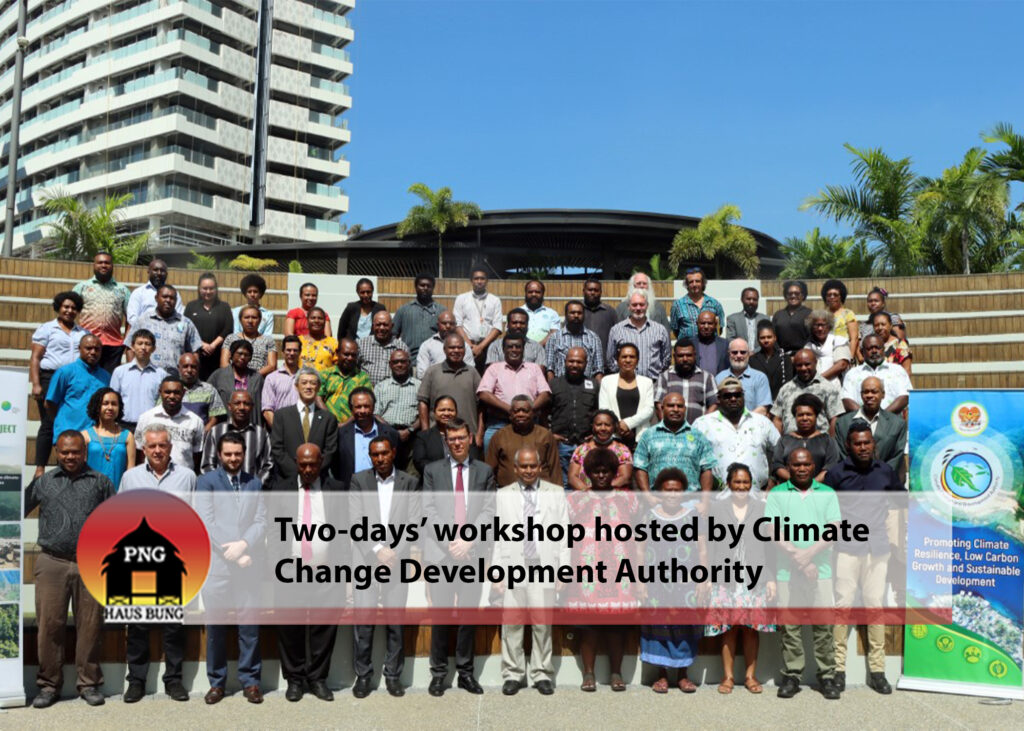Key stakeholders in the country were provided the opportunity to contribute to the finalization of four significant national documents in a two-days’ workshop hosted by Climate Change Development Authority (CCDA), beginning yesterday in Port Moresby.
The four documents are known as the National REDD+ Safeguards Guidelines include, REDD+ Development Guidelines (RDG), Benefit Sharing Distribution System Guidelines (BSDS), Grievance Redress Mechanism Guidelines (GRM), and Free Prior Informed Consent Guidelines (FPIC).
The guidelines will guide the country’s efforts in mitigating impacts of climate change through Reducing Emissions from Deforestation and forest Degradation known as REDD+.
REDD+ is a climate change mitigation approach under the United Nations Framework Convention on Climate Change (UNFCCC) of which Papua New Guinea (PNG) is undertaking.
Acting Managing Director of CCDA William Lakain said PNG requires a structured system for coordinating and reporting REDD+ actions hence the National REDD+ Safeguards Guidelines are significant.
“The REDD+ safeguards guidelines are to ensure that social and environmental risks are minimized, and the benefits from REDD+ activities are enhanced in the country. The guidelines are also to strengthen PNG’s adherence to UNFCCC safeguard requirements”, said Mr. Lakain.
“As the country is in the readiness stage of implementing REDD+, the National REDD+ Safeguards Guidelines will guide the process in all levels of governance moving forward”, added Mr. Lakain.
Stakeholders participated at the workshop comprised of representatives from civil society organizations, the private sector, the Government, and the development partners.
The workshop also informed participants on an Australian Government funded climate change and biodiversity conservation project known as “Enabling Green Growth in Papua New Guinea to address Climate Change, Conservation and Biodiversity’’.
The project will last for seven months and has a total Budget Allocation of AUD 850,000.
The Climate Change, Conservation and Biodiversity project will support PNG in developing and revising key legislation and policy documents such as the Climate Change Management Act (CCMA) regulations including the National REDD+ Safeguards Guidelines and regulations and others.
Ruben Seaton, representing the Australian High Commission thanked CCDA and partners for the opportunity to partner with Australia to advance PNG’s efforts in addressing climate change under this project.
Head of FAO PNG Office, Mr. Bir Mandal, applauded the active involvement of Civil Society Organizations on the REDD+ Safeguards Guidelines formulation process.
He said PNG’s biodiversity is under threat and the country is vulnerable to the impacts of climate change therefore collective actions are crucial.
The two-day workshop is supported by the Australian Government, Green Climate Fund (GCF), UNREDD, Global Environment Facility (GEF), and the Food and Agriculture Organization (FAO) of the United Nations.
CCDA’s Acting Managing Director William Lakain, on behalf of CCDA, acknowledged the support of the Government of Australia, FAO, GCF, UNREDD, GEF and all the key stakeholders for their participation and support and contributions to these documents.

